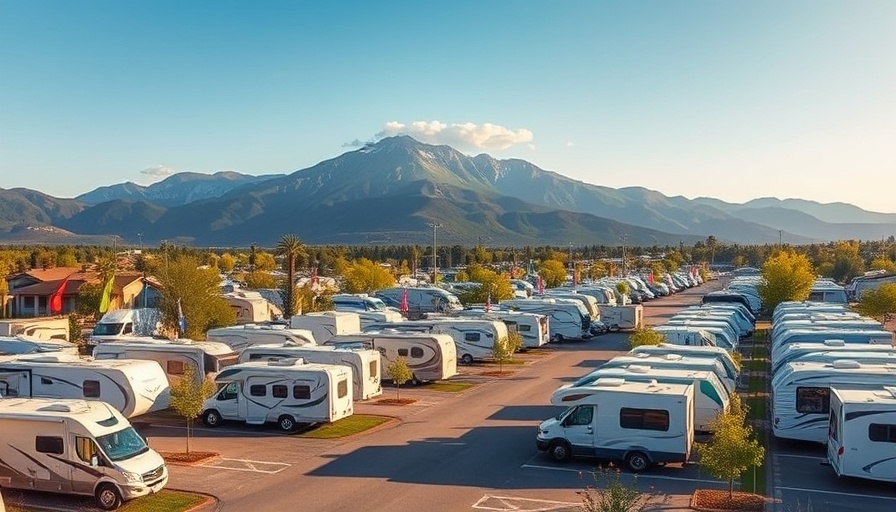
The Resilience of RV Parks Amidst Economic Shifts
The RV park industry has historically proven to be resilient against various economic cycles, adapting to the changing preferences of customers. As consumers increasingly prioritize unique and spacious travel experiences over traditional hotel stays, RV parks are witnessing a resurgence. This trend aligns with the growing demand for eco-friendly travel options, affordable getaways, and a sense of community in the travel landscape.
Adapting to Consumer Preferences
Current shifts in customer values, particularly among millennials and Gen Z travelers, suggest an increasing preference for outdoor experiences that promote social interaction and well-being. These generations are gravitating towards digital nomad lifestyles, which emphasize flexibility, experience-fueled travel, and sustainable practices. RV parks that can offer unique amenities, connectivity, and engaging community events greatly enhance their appeal within this shifting demographic.
Economic Influences on RV Park Viability
As economic conditions fluctuate, factors such as interest rates, inflation, and consumer spending patterns influence the RV park sector. For instance, during economic downturns, individuals may seek more economical travel options, inevitably elevating the appeal of RV rentals and camping experiences. Understanding these cyclical trends can position RV park owners and operators to make informed decisions that cater to their customers' financial constraints while maximizing occupancy rates and revenue opportunities.
Strategic Planning for Future Success
For RV park owners, developing a robust business plan is crucial in navigating these economic cycles. Essential components of this plan should include:
- Market Research: Conduct thorough analyses to grasp local demand trends and consumer preferences.
- SWOT Analysis: Identify strengths, weaknesses, opportunities, and threats to develop proactive strategies.
- Technological Integration: Utilizing online booking systems and customer relationship management (CRM) tools to streamline operations and enhance customer interactions.
Maximizing Customer Engagement
Engaging with guests is essential for RV parks to foster a sense of community. Implementing marketing strategies such as social media engagement, loyalty programs, and personalized experiences can drastically improve customer satisfaction and retention. Encouraging guests to share their experiences online also enhances the park's visibility and allure. Focusing on actionable strategies, RV parks can not only attract but also retain campers, ensuring continued revenue growth.
Understanding Financial Considerations
In an era of increased operational costs, effective cash flow management becomes vital for sustaining RV park operations. Business owners should consider:
- Streamlining Expenses: Implement practices to reduce operational overhead.
- Exploring Business Loans: Understand the requirements and options for acquiring funding to enhance park amenities or address seasonal fluctuations.
- Budget Planning: Regularly assessing revenues and expenditures can help identify patterns that inform future financial strategies.
Conclusion: The Road Ahead for RV Parks
The future of RV parks rests on their ability to adapt to economic cycles and changing consumer preferences. By taking strategic, data-driven approaches toward business planning and customer engagement, owners can turn challenges into opportunities. As RV travel continues to evolve, those who prioritize sustainability, community, and customer satisfaction will find themselves leading the industry.
To ensure your RV park flourishes amidst these changes, consider utilizing innovative marketing avenues, embracing technology for efficient operations, and engaging continuously with your clientele. The journey ahead promises potential for growth, provided we adapt wisely.
 Add Row
Add Row  Add
Add 




 Add Row
Add Row  Add
Add 

Write A Comment